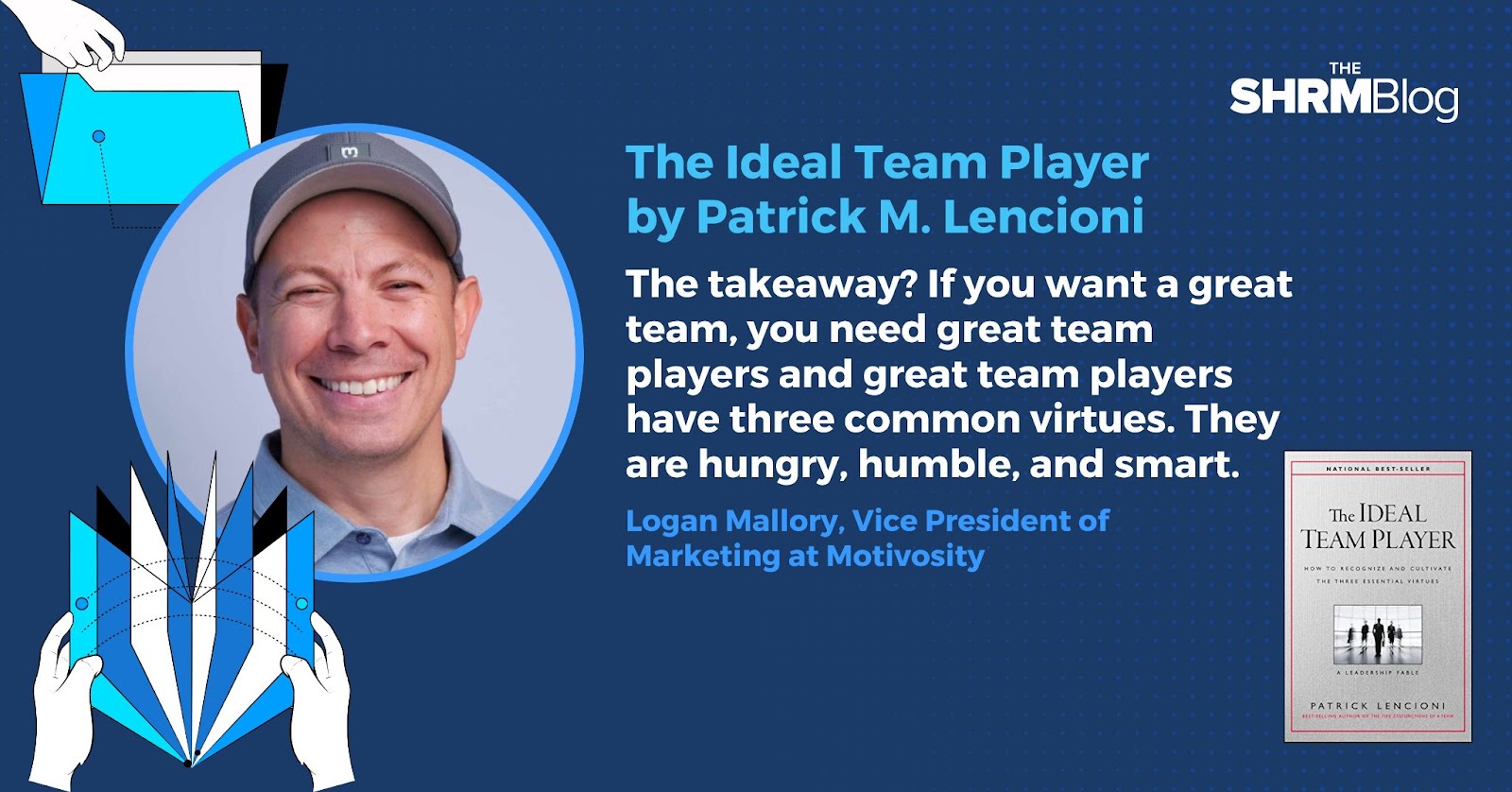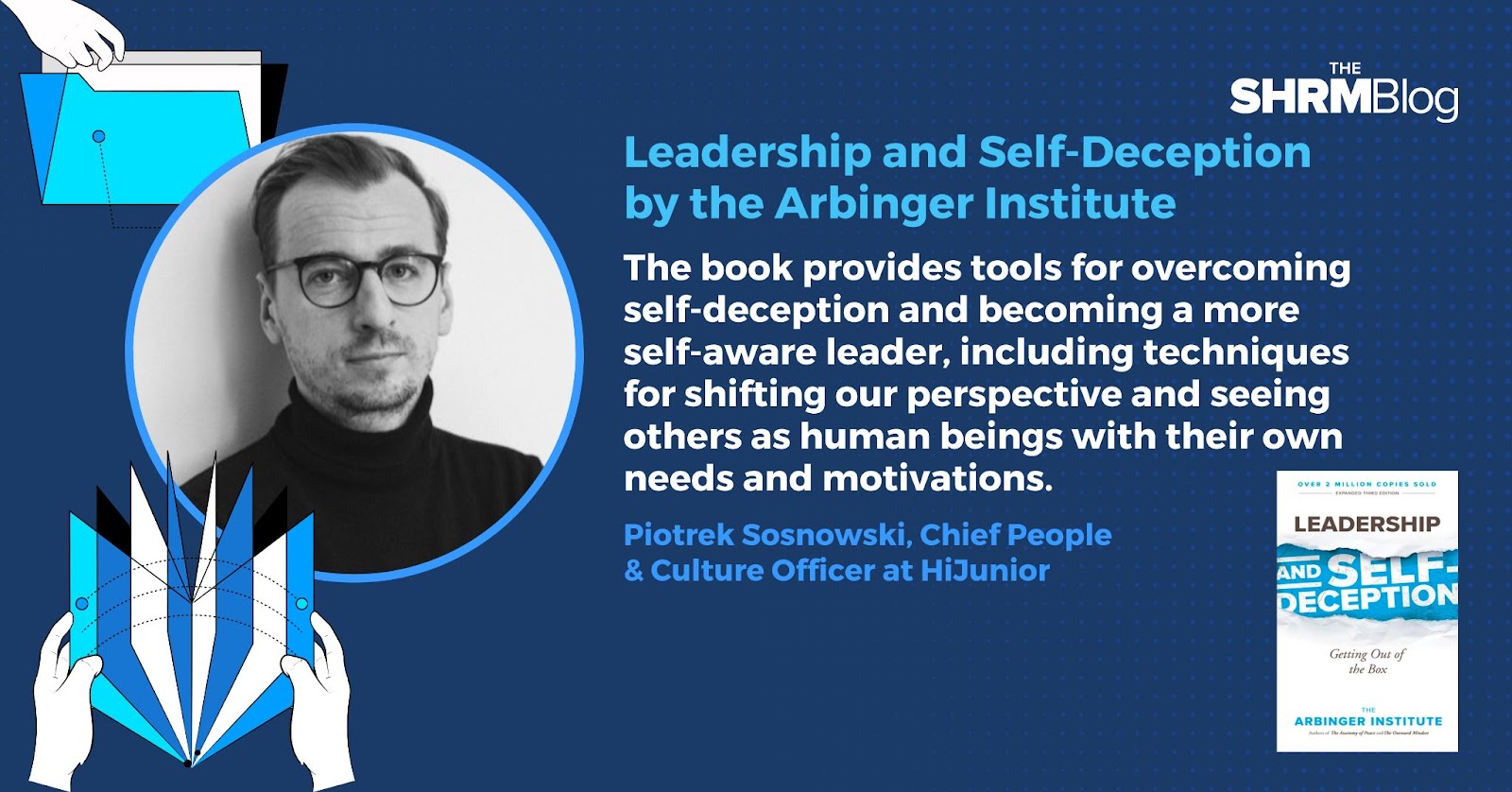11 Best Books on People Management
11 Best Books on People Management
From Welcome to Management by Ryan Hawk to The Talent Code by Daniel Coyle, here are 11 answers to the question, “What are the best books to read for managing people?”
- Welcome to Management by Ryan Hawk
- The Ideal Team Player by Patrick M. Lencioni
- The 5 Love Languages of Management by Scott M. Simpson
- The Five Dysfunctions of a Team by Patrick M. Lencioni
- Leadership and Self-Deception by the Arbinger Institute
- The Righteous Mind by Jonathan Haidt
- People Strategy by Jack Altman
- The Making of a Manager by Julie Zhuo
- The One Minute Manager by Kenneth Blanchard Ph.D.
- Surrounded by Idiots by Thomas Erikson
- The Talent Code by Daniel Coyle
Welcome to Management by Ryan Hawk
We are all good at what we do, which is why we have learned how to manage the surrounding people but is that enough to become a leader too?
This book shows you how to traverse the gap between being a good manager and a good leader, and a thorough reading will tell you that even if we are already wearing the tag of a leader, we may unwittingly be quite ineffective in it.
This book takes you through the entire journey of building yourself and building your team, and everything in between. I strongly recommend it to managers who will take on leadership positions, as well as existing leaders who wish for more fulfillment in their roles.
Riley Beam, Managing Attorney, Douglas R. Beam, P.A.
The Ideal Team Player by Patrick M. Lencioni
The Ideal Team Player is a consumable book that reads as a narrative about managing people. The takeaway? If you want a great team, you need great team players and great team players have three common virtues. They are hungry, humble, and smart.
These types of people do more than they are asked, aren't self-centered, and are passionate about their contributions. The book gives you a quick master class on how to hire and manage the right people.
Logan Mallory, Vice President of Marketing, Motivosity
The 5 Love Languages of Management by Scott M. Simpson
One book that has been getting much attention lately is The 5 Love Languages of Management. This book focuses on the idea that managers can use five different love languages to connect with and motivate their employees.
Simpson argues that the five love languages are quality time, words of affirmation, acts of service, physical touch, and gifts. He provides tips and advice for using each love language to create a more positive and productive work environment.
Critics of The 5 Love Languages of Management say it is too simplistic and doesn't provide enough concrete advice. However, many people who have read the book say that it has helped them to understand their employees better and how to manage them effectively.
So, if you're looking for a book on working with people, The 5 Love Languages of Management is worth checking out. But remember that every situation is different, and you'll need to use your judgment to decide what management style will work best for you and your team.
Adrian Pereira, Co-Founder, Eco Pea Co.
The Five Dysfunctions of a Team by Patrick M. Lencioni
Managing others successfully is a skill that leaders must learn in order to develop healthy and productive teams. One of the best books that I have utilized, and regularly reference for managing people, is The Five Dysfunctions of a Team by Patrick M. Lencioni.
This book identifies the five dysfunctions teams face:
- Absence of Trust
- Fear of Conflict
- Lack of Commitment
- Avoidance of Accountability
- Inattention to Results
It also proposes strategies leaders can employ to address and overcome them. This book will equip new and seasoned People Leaders with the skills necessary to develop strong management skills. I encourage all managers to read this book to gain the invaluable insight it provides on managing people and building teams.
Brittney Simpson, HR Operations Manager, Walker Miller Energy Services
Leadership and Self-Deception by the Arbinger Institute
Leadership and Self-Deception: Getting Out of the Box by the Arbinger Institute is an amazing book as it explores the concept of self-deception and how it can hold us back as leaders.
The book argues that our self-deception can cause us to see others as objects, rather than as people, which can create conflicts and hinder our ability to lead effectively. The book provides tools for overcoming self-deception and becoming a more self-aware leader, including techniques for shifting our perspective and seeing others as human beings with their own needs and motivations. It also discusses how to build trust and create a culture of collaboration and accountability within a team.
Overall, Leadership and Self-Deception is a thought-provoking book that offers practical advice for improving your leadership skills and building better relationships with others. I have found it to be a valuable resource for developing my leadership abilities and becoming a more effective leader.
Piotrek Sosnowski, Chief People & Culture Officer, HiJunior
The Righteous Mind by Jonathan Haidt
My most important goal as a manager is connecting deeply with those I manage so that I can best support what they want to achieve. Working with people of all different backgrounds, orientations, and perspectives, it is important that I stay humble in my beliefs and don't assume I know best.
It's also important that I ascribe good faith to everyone I work with so that I can avoid us-versus-them scenarios. The Righteous Mind was an eye-opening read that helped me understand how to better relate to people who may not have the same beliefs and experiences as I do.
Brett Ungashick, CEO & CHRO, OutSail
People Strategy by Jack Altman
People Strategy by Jack Altman is the best book to read for managing people. As a director, I had read several books on leading with impact, but People Strategy really changed how I thought about managing people.
It encourages the reader to think through their own strategies and come up with solutions that are tailored to each individual situation. People Strategy is full of case studies and practical advice that can be applied directly to managing people and making sure you get the most out of your team.
The author does an excellent job of showing how the founding principles of People Strategy can be applied both on a small and large scale to lead with impact and create a high-performance organization.
Derek Bruce, Sr. Director, Skills Training Group
The Making of a Manager by Julie Zhuo
The Making of a Manager by Julie Zhuo is one of the best books to read for managing people because it covers the rarely-mentioned process of becoming a first-time manager.
This book charts Zhuo's journey as a new, young, rising leader at Facebook. The text is full of firsthand examples that show the challenges and pitfalls new supervisors often encounter. Zhuo offers honest accounts and practical advice for navigating these new roles and responsibilities.
This book is a relevant resource since studies show that most organizations under-train new leaders, and many ambitious junior leaders are hesitant to ask for help out of fear of seeming incapable. The Making of a Manager is an invaluable guide to quickly leveling up as a leader and transitioning from employee to manager.
Grace He, People & Culture Director, Teambuilding.Com
The One Minute Manager by Kenneth Blanchard Ph.D.
The One Minute Manager by Kenneth Blanchard Ph.D. and Spencer Johnson M.D. is the best book I've read for managing people. As the founding partner of a family law firm with offices in multiple cities, I've spent a significant amount of time on the day-to-day tasks that keep my firm running.
After reading this book, I've been more successful at setting clear goals and expectations for myself and my associates so I can devote more time to the clients I represent. Instead of taking the traditional top-down approach, this book taught me the importance of taking one minute out of every day to praise, redirect, and help develop goals.
As I have incorporated this mindset into my firm, I've been able to foster more confidence in my associates and create clarity on what's important, allowing my firm to attract more clients and establish itself as a top-rated source of legal representation.
Mark Childress, Attorney, The Law Offices Of Shane Mcclelland
Surrounded by Idiots by Thomas Erikson
If you really want to influence and collaborate with colleagues effectively—regardless of whether they are direct reports—then a good starting point is to understand the way they and you yourself are "wired up." If you have these insights, you are well-positioned to then effectively tailor your communication and style of interaction person by person.
Erikson unpacks four colorful core behavioral types, based on the DISC method that he developed. His goal is to equip not just "managers" but "people in general" to appreciate, accept, and get along better with each other.
Rather than dismissing those who differ from ourselves as "idiots," we can learn to embrace and work with and through the diversity we find in any workplace. As Erikson himself says, "The idiots who surround you are not idiots at all. Instead, they are individuals worthy of respect, understanding, and being valued."
Richard Howell, HR Lead, DACH Region, Nilfisk
The Talent Code by Daniel Coyle
The Talent Code: Greatness Isn't Born, It's Grown. Here's How by Daniel Coyle is one of my all-time favorites. It focuses on group dynamics and how they relate to organizational talent nurturing and optimization. Specifically, the author outlines practical strategies and techniques companies can use to accomplish growing talent within various scenarios. He also backs up these suggestions with sound scientific research and first-hand experience. It’s an insightful and eye-opening must-read for anyone in the HR or TA space.
Oz Rashid, Founder & CEO, MSH






